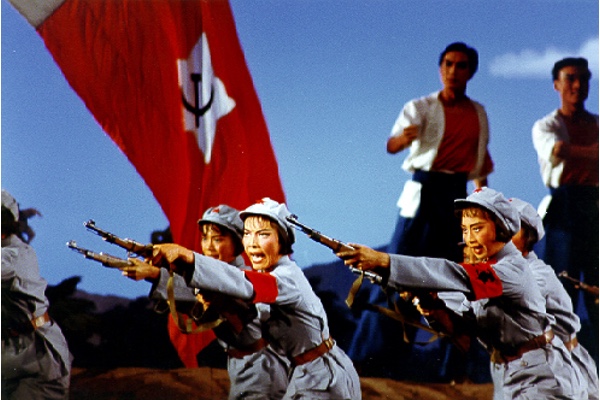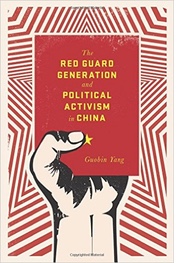How the Chinese Cultural Revolution Came to an End

Related Link 50 Years After the Cultural Revolution, a Son Awaits Answers on His Father’s Death (NYT)
On a cold day in Hangzhou in early February 1976, several young men gathered at the home of Li Junxu, a 23-year-old worker nicknamed “Cricket.” They often gathered like this to talk about current affairs and politics, underground style. This time, “Cricket” showed his friends two letters he had written – to be precise, two letters he had forged as the last wills of the late Premier Zhou Enlai, who had died on January 8. The first will was written to Zhou’s wife Deng Ying-chao, addressing her as “Comrade Little Chao.” The second will was addressed to Mao and the Central Committee of the Chinese Communist Party. It began by telling Mao that his cancer had spread and he would soon “go to see Marx.” Then it shifted gear and began to praise Deng Xiaoping’s energy and accomplishments, hinting to Mao that Deng could succeed him as the premier.
 Marveling at
how genuinely these letters sounded like Zhou speaking, the young men copied
them by hand and later showed them to their friends and families. Two months
later, these two letters had spread far and wide in China -- gone viral. An alarmed Party Central issued an urgent
notice charging that the so-called premier’s wills had been forged and were
nothing but baseless counter-revolutionary rumors. In the nation-wide witch
hunt that followed, over a thousand people were arrested, investigated, and
implicated in other ways. “Cricket” and his friends in Hangzhou were no
exception.
Marveling at
how genuinely these letters sounded like Zhou speaking, the young men copied
them by hand and later showed them to their friends and families. Two months
later, these two letters had spread far and wide in China -- gone viral. An alarmed Party Central issued an urgent
notice charging that the so-called premier’s wills had been forged and were
nothing but baseless counter-revolutionary rumors. In the nation-wide witch
hunt that followed, over a thousand people were arrested, investigated, and
implicated in other ways. “Cricket” and his friends in Hangzhou were no
exception.
Told in a memoir published in 2009, this was a story of secrecy, intrigue, persecution, youth, friendship, and more. But above all, it was a story about the unraveling of the Chinese Cultural Revolution and the undoing of the Maoist era.
Exactly when the Cultural Revolution ended does not have an unequivocal answer. Mao’s death on September 9, 1976 was a critical turning point. The coup that led to the arrest of Mao’s wife and her fellow “Gang of Four” on October 6, 1976 was another milestone. Yet the Cultural Revolution may well have been unraveling since at least 1968. Later that year, having outlived their use as Mao’s political pawns, millions of young Red Guards were banished to the villages to become peasants.
Contrary to what they had learned from the media and their school textbooks, these “sent-down” youth saw few signs of a prosperous rural socialism. Poverty was everywhere. Many began to pull strings in order to move back to the cities.
It was during these times of hardship that an underground cultural movement appeared. “Sent-down” youth read, hand-copied, and circulated banned books, sang forbidden love songs, and DIY-ed their own short-wave radio sets on which they listened to forbidden foreign programs. They wrote diaries, poems, letters, and even novels. Letters were written not just to families, but also to friends and former classmates who had been dispersed to different parts of the country. Some letters were circulated among friendship circles because they contained in-depth and insightful social analysis.
These activities could be politically risky. Ren Yi, who wrote a popular song about the lives of “sent-down” youth, was sentenced to ten years in prison because the song allegedly spread bourgeois ideas and was thus counter-revolutionary. Zhang Yang, the author of a novel in underground circulation who was also charged of being a counter-revolutionary, almost faced a death sentence. His novel, titled “The Return,” is a love story about a female Chinese scientist trained in the US who had returned to China to look for her past lover.
Despite risks, these activities spread. Consequently, as a former “sent-down” youth in Beijing told me, many small “islands” of underground culture appeared around the country. The small group in Hangzhou where the premier’s wills were forged was one such small island.
The two forged texts were symptomatic of the ambivalent and yet transgressive character of this underground culture. The wills were not exactly oppositional. The one addressed to Mao read like the sincerest words of a loyal minister to his monarch qua closest comrade-in-arms. And yet by praising Deng Xiaoping, it made a veiled attack on Deng’s political rivals who were none other than Mao’s wife Jiang Qing and her lieutenants. Such a veiled attack could be interpreted as a challenge against Mao and his Cultural Revolution policies. That two short texts forged by a few young men spread all over the country in a matter of two months suggested that its political message resonated with the public.
Writing the two wills in Zhou Enlai’s personal tone was less an act of irreverent parody than one of sincere emulation of the style of a popular leader. In a political culture that apotheosized the emulation of revolutionary heroes, with Mao being revered by youth as the greatest of all heroes, political emulation had become second nature. Except that this time, emulation was a means of critique and protest, not one of enacting loyalty.
Such was the underground culture that fermented in the small “islands” of “sent-down” youth around the country. In the middle of these activities, official ideologies became gradually eroded, losing their magic hold over the population. By the end of March, 1976, open protest activities erupted in the city of Nanjing in the name of mourning the death of Zhou Enhai. Days later, the April Fifth movement broke out in Beijing. Again in the name of mourning Zhou’s death (April fifth was the memorial day on traditional Chinese calendar), students and workers poured onto Tiananmen Square, where they put up poems and posters eulogizing the virtue and integrity of Zhou and making not so subtly disguised attacks at Jiang Qing and other radical Maoists.
When the Tangshan earthquake hit on July 27, 1976, felling a quarter million of its residents, the rumor that the earthquake was a foreboding that Mao had exhausted his Mandate of Heaven became as credible as the premier’s wills. In imperial times, natural disasters on such a tragic scale were omens of dynastic change. And dynasties did change soon, when Mao died less than two months later.
Today, with the internet, a mysterious letter of the 1976 type needs only two hours, not two months, to spread around the country -- that is, if it is not censored. Such a letter appeared recently on the Chinese web, calling on China’s top party leader Xi Jinping to resign. It was quickly removed. Yet years of censorship has proved incapable of cleansing the web of dissent. In recent years, the Chinese leadership has responded by strengthening ideological control and promoting the “positive energy” of patriotism and national pride. There are even efforts to tap into Maoism and Cultural-Revolution-style “red culture” as potential cultural resources for gaining legitimacy and winning popular support. Is the idea of building a new political culture to bamboozle the public thinkable in the information age? I will wait until November 8 this year to attempt an answer.